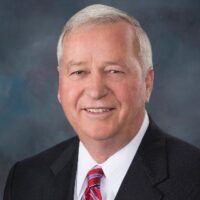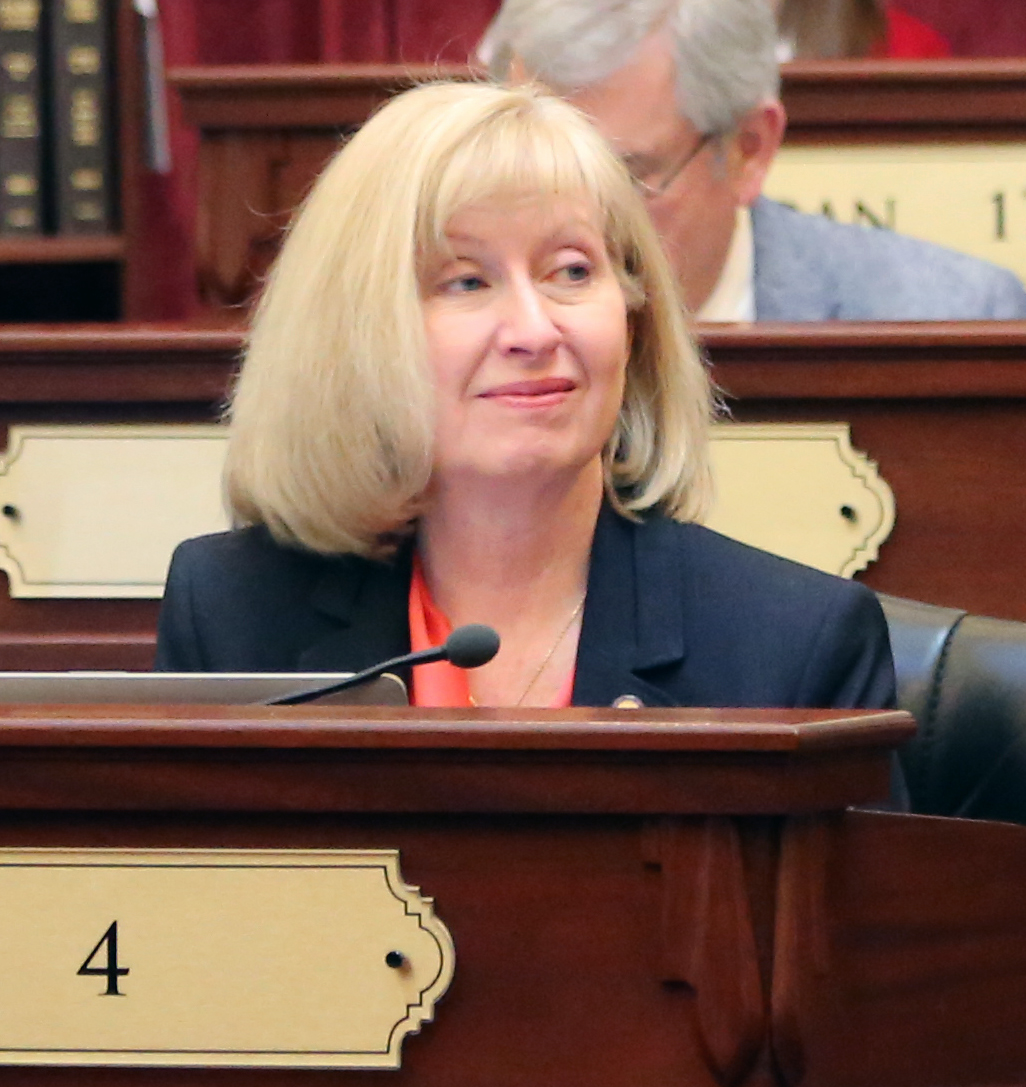More than 100 people packed the Statehouse Friday morning for a hearing on a private school scholarship bill, forcing officials to open a second committee room to accommodate the overflow.
The House Education Committee took no action on House Bill 590, voting to continue the hearing Wednesday to hear additional testimony. But for more than 90 minutes, committee members and the public held a vigorous debate about the proposal.

Sponsoring Rep. John Vander Woude, R-Nampa, and legislative lobbyist Blake Youde say the scholarship is designed to give poor and at-risk students more school options.
Opponents, including three major public education groups, say the scholarship could eventually direct state resources away from public schools through state tax credits. They also call HB 590 a voucher bill masquerading as a scholarship bill — a charge Vander Woude and Youde denied.
Under the bill, eligible students would be able to use scholarships for tuition, fees or uniforms at an accredited private school, tuition and fees at a nonpublic online school, fees for tutoring, computers, feeds for standardized tests and more. In order to receive a scholarship, students must be classified as a special-needs student, come from poverty, have a disability or be the child of an active duty military parent or the child of a member of the military killed in action.
“What are we doing for kids who have disabilities? What do we do for kids who have disadvantages?” Vander Woude asked.
Several representatives wondered if the bill would harm public schools. They asked whether the bill was premature, given a pending rewrite to Idaho’s school funding formula. And they asked whether incentivizing parents to send special-needs students to private schools is in the best interest of impoverished or at-risk students, if these schools don’t accept federal funds for free-and reduced-price lunch programs or transportation.
“How does that benefit us, creating a layer of government intrusion in private schools?” asked Rep. Paul Amador, R-Coeur d’Alene.
Due to scheduling limitations, just three members of the public were called to testify. Two spoke in favor of the bill, while one opposed it.
“It’s going to take a variety of education experiences and opportunities and they need to work side by side (to improve education attainment and go-on rates),” retired Weiser Superintendent Jim Reed said in supporting the bill.
Earlier this month, the Idaho Education Association, the Idaho School Boards Association and the Idaho Association of School Administrators came out against the bill.
“No matter what you call it, if it’s public money going to private schools, we are firmly opposed to that concept,” IEA President Kari Overall told Idaho Education News earlier this month.
The bill does not call for spending state general funds on the scholarship. But on several occasions, Vander Woude said backers may come back and look to attach a state tax credit or incentive to encourage fund donations.
School board elections
A bill to move school board elections is moving to the Senate floor.
On what appeared to be a party-line vote, the Senate State Affairs Committee endorsed Senate Bill 1280. If it passes, school board elections will share a ballot with mayor and City Council elections, starting in November 2019.

Sen. Mary Souza said she believes this move will improve Idaho schools — by improving voter turnout and by attracting better candidates for the important position of school trustee.
“Let’s keep the kids in mind, please,” she said.
Testimony was mixed.
Caldwell School District Superintendent Shalene French said she favored the move, pointing to “disheartening” turnout in recent school board elections. The district drew more voters to the polls for a plant facilities levy in November, and she said that turnout better represents local interest in school issues.
ISBA executive director Karen Echeverria said her group supports the move as a “fallback position.” Sharing a ballot with nonpartisan city elections would be better than moving trustee elections to partisan, even-year November elections, she said — but ISBA would prefer to keep trustee elections as is.
Speaking on behalf of Idaho Rural Schools and the IASA, Harold Ott spoke against the bill, and electing trustees in the middle of a school budget year. Ada County deputy clerk Phil McGrane said the move would require counties to print up additional versions of a ballot, increasing the chance of error at the polls.
For committee members, the question boiled down to turnout.
Senate Majority Leader Chuck Winder cited the recent turmoil in the West Ada School District. Two trustees resigned and two others were recalled in 2016 — and Winder blamed that on the 2015 elections that changed the makeup and the tone of the board.
“The more turnout we can get … it eliminates that possibility from happening,” said Winder, R-Boise.
SB 1280 passed on a voice vote; Democrats Michelle Stennett of Ketchum and Cherie Buckner-Webb of Boise voted no. The bill now goes to the Senate floor.
House passes Internet tax bill
A bill to pave the way to collecting sales taxes on Internet purchases is headed to the Senate.
House Bill 578 might not have an immediate effect on taxes available for education or other state agencies. First, the bill’s sponsors want the State Tax Commission to track the new tax collections.
Sponsors say the change could bring in anywhere from $22 million to $37 million a year.
Debate on the perennial topic stuck to familiar themes. Supporters said an Internet sales tax law would level the playing field between brick-and-mortar retailers and online competitors. Rep. Vito Barbieri, R-Dalton Gardens, decried the bill as another ploy to meet the growing demand to fund state government.
House Majority Leader Mike Moyle made a familiar argument in support of the bill — Idahoans are required to track and report online purchases, but often they just don’t know it. Moyle, R-Star, has long opposed Internet sales taxes, but he is co-sponsoring this year’s bill.
With the House’s 46-21 vote, HB 578 heads to the Senate.
Repeat elections bill derailed
After a scrum on the House floor over amendments, a bill designed to stop “repeat” bond and levy elections appears to be dead.
House Bill 487 would have required school districts and local governments to wait one year before bringing back a failed ballot measures. Rep. Heather Scott, R-Blanchard, described her bill as a voter safeguard against “aggressive” taxing districts.
But on Friday, the bill was derailed in the House’s arcane amending process. Scott sought to make a minor change in the bill — to reduce the cooling-off period to 11 months. That amendment failed, and opponents of the bill withdrew competing amendments.
At Scott’s request, the bill was pulled from the floor, effectively killing it for the year.
Six new bills introduced
House Education worked quickly to introduce six bills — including schools chief Sherri Ybarra’s third annual attempt to launch a rural schools support center.
Four bills, including Ybarra’s rural proposal, were introduced at once and without discussion.
Ybarra has pushed to pilot a rural schools center as a sort of educational co-op. The center would be a mechanism for pooling resources and offering personnel or programs to small, geographically isolated school districts.
For each of the past two sessions, the Senate has balked at taking up the bill after some legislators argued the bill is unnecessary and an expansion of government. Other lawmakers have wondered if Ybarra’s State Department of Education could offer the same kind of support without a rural schools program.
One of the other new bills has to do with verifying union representation for school district collective bargaining. Pushed by House Education Chairwoman Julie VanOrden, R-Pingree, the bill would require unions to have employees sign and verify their representation cards every two years. Under current law, unions must demonstrate that a majority of district employees wish to be represented by the union during negotiations.
These six bills could return to House Education for a full hearing.
Idaho Education News reporter Kevin Richert contributed to this report.
